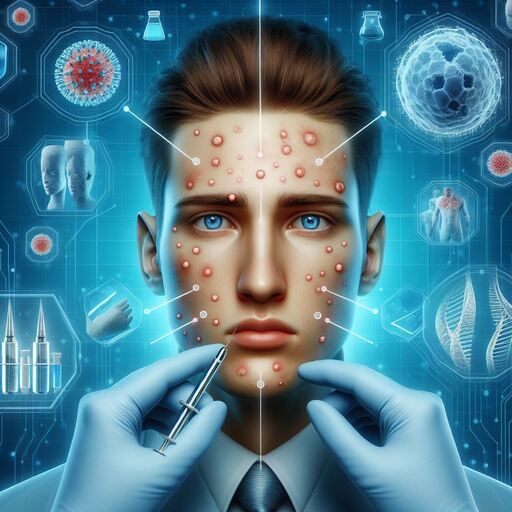The Future of Acne Research and Treatment Advances in Genetics
The Future of Acne Research and Treatment Advances in Genetics
Acne is one of the most common skin conditions worldwide, affecting millions of individuals. Despite advances in research and treatment options, acne remains a significant public health concern. However, recent advances in genetics, technology, and personalized care are paving the way for new and improved treatments. In this article, we will discuss the future of acne research and treatment, focusing on these three areas.
The Future of Acne Research and Treatment Advances in Genetics
Genetics:
1. Understanding Acne Genetics: Recent studies have identified several genes that contribute to acne development. This understanding has led to the development of targeted therapies that target specific genes and reduce acne severity.
2. Precision Medicine: Precision medicine, which involves tailoring treatment based on an individual’s genetic makeup, is gaining popularity in the field of acne research. Genetic testing can help identify individuals who are at high risk for severe acne and may benefit from targeted therapies.
Technology:
1. Telemedicine: Telemedicine allows dermatologists to consult with patients remotely, reducing the need for in-person visits. This approach can be particularly beneficial for individuals living in remote areas or those with limited mobility.
2. Wearable Devices: Wearable devices that monitor skin temperature, humidity, and other environmental factors can help individuals manage acne by identifying triggers and adjusting their skincare routine accordingly.
3. Artificial Intelligence (AI): AI is being used to develop predictive models that can identify individuals at high risk for severe acne. These models can also help dermatologists develop personalized treatment plans based on an individual’s unique characteristics.
Personalized Care:
1. Skincare Routine: Developing a personalized skincare routine that addresses an individual’s specific needs and triggers can be highly effective in managing acne. This may include using targeted products, avoiding certain foods or drinks, and practicing stress-reducing techniques.
2. Lifestyle Changes: Lifestyle changes such as maintaining a healthy diet, exercising regularly, and getting adequate sleep can also help manage acne. Additionally, mindfulness practices such as meditation or yoga can reduce stress and improve overall wellbeing.
3. Education: Educating individuals about the causes of acne and how to manage it can be highly effective in reducing its severity and impact on their quality of life. This may include providing information on skincare products, dietary changes, and stress-reducing techniques.
The Future of Acne Research and Treatment Advances in Genetics
Conclusion:
The future of acne research and treatment is promising, with advances in genetics, technology, and personalized care paving the way for new and improved treatments. As our understanding of acne grows, so does our ability to develop targeted therapies that address an individual’s unique needs and triggers. By embracing these advancements, we can help individuals manage acne more effectively and improve their overall quality of life.
The Future of Acne Research and Treatment Advances in Genetics

